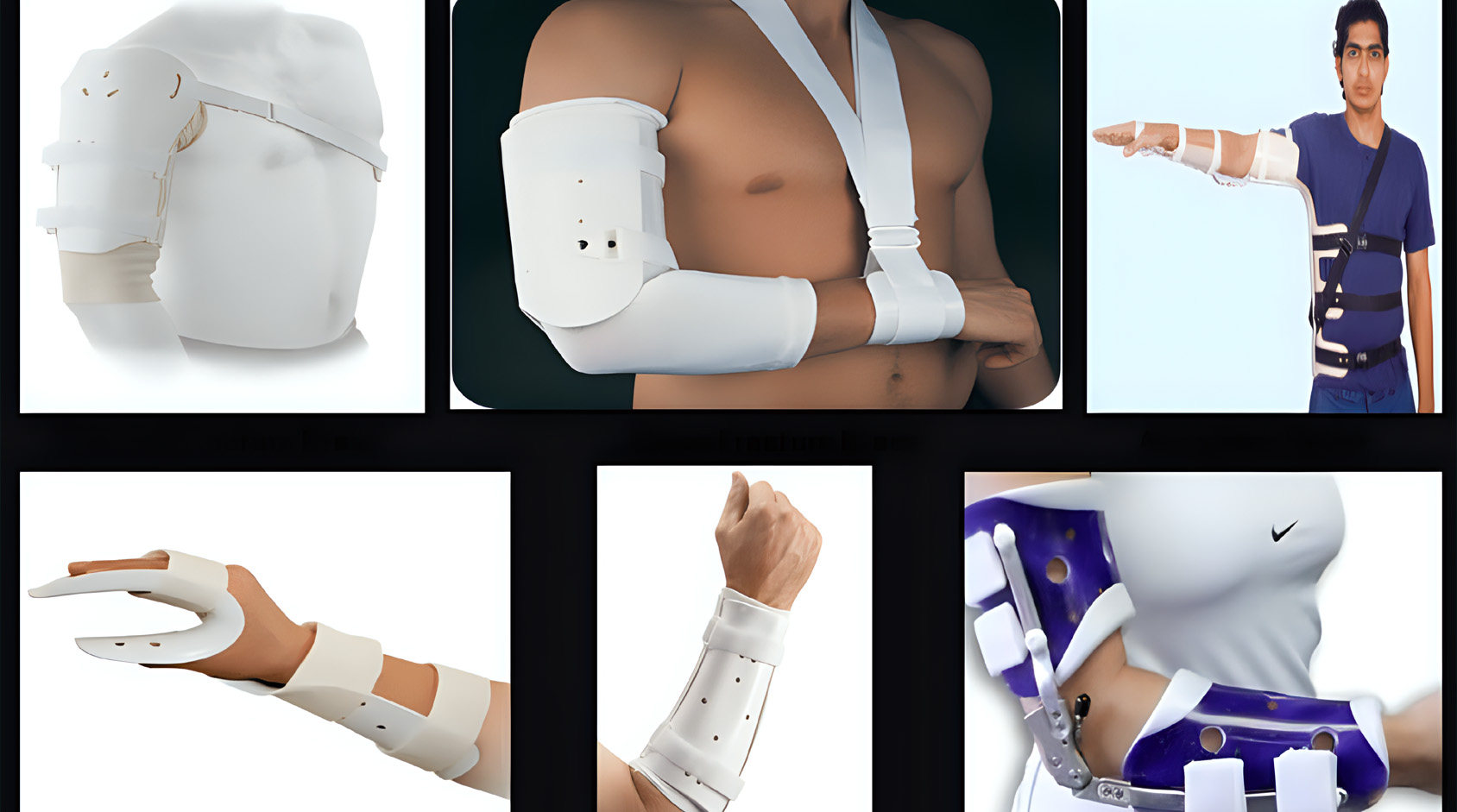
Upper extremity orthotics are specialized medical devices designed to support, stabilize, or enhance the function of the upper limbs, which include the arms, elbows, wrists, and hands. These orthotic devices are used to address various medical conditions, injuries, or functional limitations affecting the upper extremities. Here's a description of upper extremity orthotics
Upper extremity orthotics are primarily designed to provide support and stability to the upper limbs. They are custom-fitted to the individual's anatomy and condition, helping to prevent excessive movement, strain, and pain.
Upper extremity orthotics come in various types, including:
These orthotics provide support to the shoulder joint and are often used to manage conditions like shoulder instability, rotator cuff injuries, or post-surgical rehabilitation.
Elbow orthotics offer support and compression to the elbow joint, helping to manage conditions like tennis elbow (lateral epicondylitis), golfer's elbow (medial epicondylitis), and post-injury care.
Wrist splints are designed to immobilize and support the wrist, providing relief for conditions such as carpal tunnel syndrome, wrist sprains, or post-surgical recovery.
These orthotics immobilize or support the hand and fingers to manage conditions like trigger finger, arthritis, or to promote proper alignment post-injury or surgery.
Many upper extremity orthotics are custom-fitted to ensure a precise and comfortable fit for the individual. These orthotics are tailored to the person's unique anatomy and condition.
Upper extremity orthotics are crucial in the recovery and management of various injuries, including fractures, sprains, and tendon injuries. They provide the necessary support for healing while minimizing pain and discomfort.
Individuals with chronic conditions such as arthritis or repetitive stress injuries can benefit from upper extremity orthotics. These devices can reduce pain, enhance joint function, and improve overall quality of life.
Upper extremity orthotics can effectively reduce pain and discomfort associated with a range of upper limb conditions. By providing support, they alleviate strain on affected areas.
Some upper extremity orthotics are designed to improve function. For example, they may assist with grasp and finger movement for individuals with hand muscle weakness or neurological disorders.
The selection, fitting, and monitoring of upper extremity orthotics are typically managed by orthotists, healthcare professionals who specialize in orthotic devices. They ensure that the orthotics are correctly adjusted to maximize effectiveness and comfort.
Upper extremity orthotics are essential tools for individuals recovering from upper limb injuries, managing chronic conditions, and enhancing their overall upper limb function. The appropriate selection, fitting, and adjustment of orthotics are crucial for ensuring they meet the specific needs of the individual's condition and lifestyle. Consultation with a healthcare provider or orthotist is recommended to make informed decisions about upper extremity orthotics.
Ask The Expert